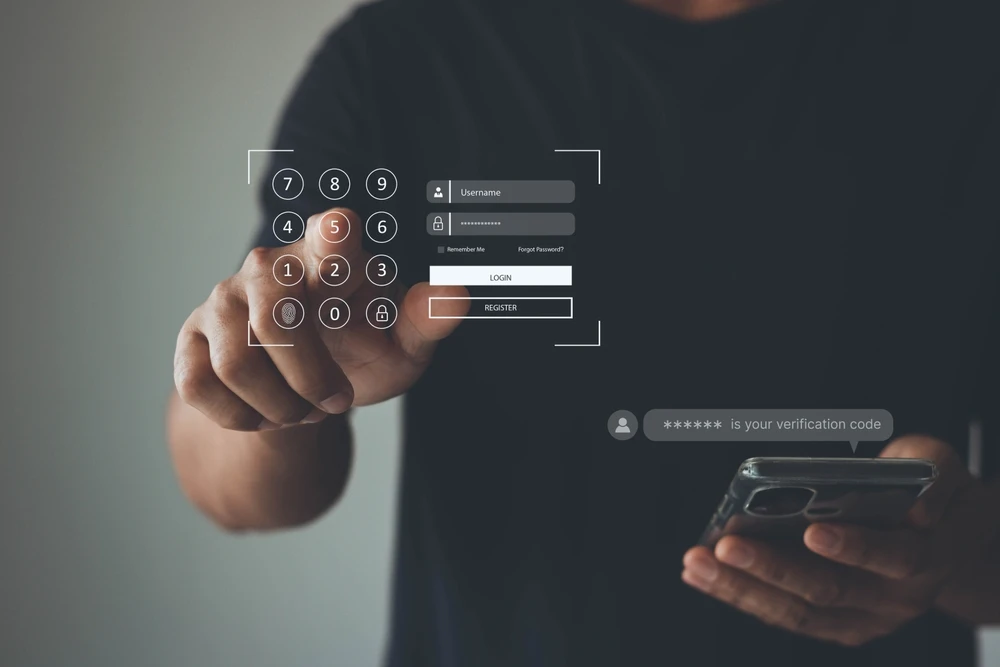- Home
- /
- Solutions
- /
- Digital Asset Protection
- /
- Two / Multi Factor...
DIGITAL ASSET PROTECTION
Two / Multi Factor Authentication (2FA / MFA)

Call it Multi-Factor Authentication, Multi Factor authentication, or multifactor authentication – the literal semantics aside, you need it. Why? The problem with passwords is simply that 66% of them are straightforward-weak, and most people tend to reuse passwords up to 80% of the times. So you need the means to make sure you admit the right access requests (read devices) into the network.
Multi Factor Authentication allows you to add an additional layer of security to your access protocols – each layer adding an increased complexity for unauthorised users or devices from accessing your network. Why, though?
The degree of sophistication in cyberattacks has increased to such an extent that attackers are subtle enough to not reveal their intentions until it is too late. This translates into a simple scenario. The users device is already compromised. But the attacker waits until the user has logged into the system and has access before they start, and wait for the moment when the network security monitoring systems will not detect unnaturally diverse access requests. Quite sneaky! Multi Factor Authentication when combined with a zero-trust security posture makes sure users need to authenticate themselves each time there is an access request from their device. The result? As Microsoft found out, it blocks up to 99.9% of unauthorised requests.
Multi-factor authentication (MFA) is an authentication method, where a user is granted access only after successfully presenting two or more pieces of evidence to an authentication mechanism: knowledge, possession, and inherence.
Two-factor authentication (2FA) is a type of multi-factor authentication. 2FA grants a user access when the user demonstrates something they know (password) and a second factor other than something they have or something they are, like a one-time password (OTP).
Using simple passwords to access your applications online, and using same passwords across accounts are some of the common causes of security issues nowadays. 2FA is widely active in websites and services like Google accounts, social media platforms, etc. to protect their users from account takeovers and other threats.
Similarly, you can enhance the security of your entire network by adopting innovative MFA solutions. These solutions enhance security with user ease by going password-less, while still meeting government compliance requirements. In a work environment, mobile phones can bring up both productivity and security threats. MFA ensures maximising productivity without sacrificing the security of your work environments.
WHAT TO EXPECT FROM MULTI FACTOR AUTHENTICATION SOLUTIONS
Using the same password across platforms, too-simple passwords, downloading software from unsecured websites, and/or clicking links in emails from unknown senders are some of the common reasons of password theft nowadays. As hackers get more smarter and sophisticated with their threats and attacks, MFA solutions mitigate these challenges to allow only authorised users to gain access to only the permissible applications and services on your network.
While passwords can get stolen and misused, the first approach to Multi Factor Authentication – two-factor authentication or 2FA goes beyond passwords to grant access after the user has successfully moved on to the next level of security, usually time-sensitive, like OTP sent to your mobile, an auto-generated code, or biometric verification on a device you own.
Hacking can cause financial loss to your organisation, and also the loss of reputation and image in the online as well as the physical world. Therefore, your virtual security is one of your main business priorities. And to secure your applications, protect your data and shield your users from threats and attacks, a good multi factor authentication solution for your enterprise can be as simple as 2FA. It is the easiest way to drastically improve your virtual security.
HOW IVALUE CAN HELP
iValue offers SSL VPN solutions that give you the control to provide different access rights for different users. The access granted is more precise, and you have complete control by enabling creation of tunnels to specific applications using sockets rather than to the entire network. Now add Multi Factor Authentication, and you have a third layer of security, giving you near-complete security. Near-complete because there is never a silver bullet for preventing network security incidents. Only vigilance. Constant Vigilance.
Our SSL VPN solutions provide data security across your IT infrastructure and privacy of your users. We support connectivity to any TCP/IP-based application, enforce endpoint security, and include a dashboard to easily create, edit, and manage identity-aware, context-based policies.
